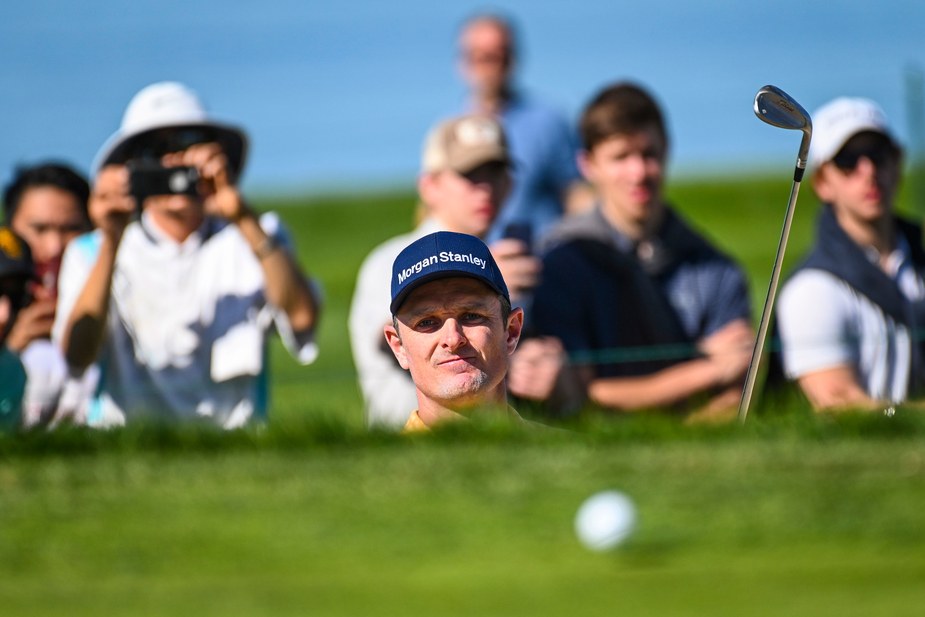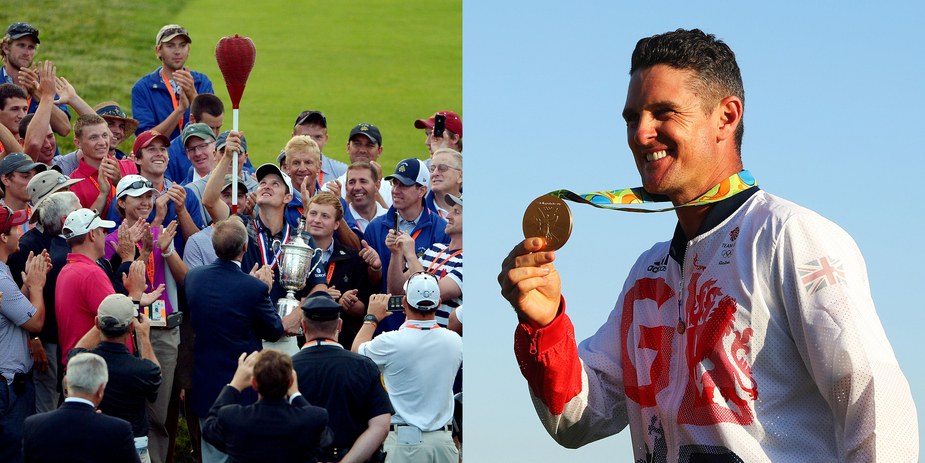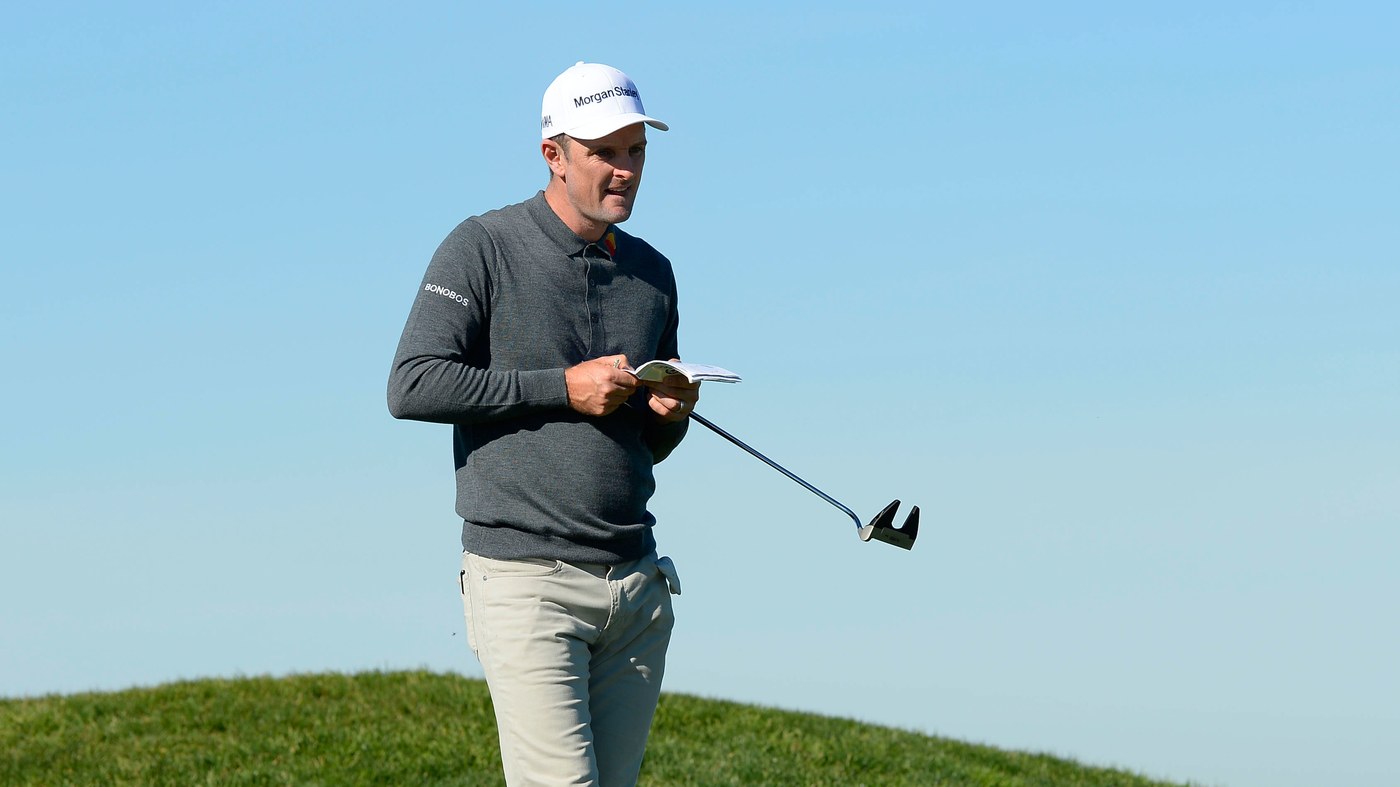By Shane Ryan
Justin Rose, the world’s no. 1 golfer, won yet another trophy at Torrey Pines last Sunday, and is arguably the most dominant golfer on the planet today. That, of course, comes with a million caveats, but the most important is that that golf is not a sport that typically lends itself to dominance. Rose is not winning every single tournament he enters, and there’s a (much) greater than 50 percent chance that he won’t win each individual tournament he enters. Still, by golf’s high standards he’s been a force, as his World Ranking, his FedEx Cup championship and his endless top-10s attest. It’s the kind of streak that is both consistent and spectacular—he’s missed just three cuts in two-plus years while putting up 31 top-10s. But this is no Tony Finau situation; in that time, Rose has also notched six wins. He can grind, he can close, he can do it all. He even has an Olympic gold medal to wear around his neck, something no other living men’s golfer can boast (for the record, the only other two men to win the same prize died in 1938 and 1945, respectively).
The one thing he’s been able to do just once, in an otherwise glorious career, is win a major. I saw it happen, at Merion in 2013, and it was as great a major win as you could ask for. Rose survived on an incredibly tough course (his winning score was one over par), and he shot a final-round 70 under intense pressure from the likes of Jason Day, Phil Mickelson and Jason Dufner to secure the trophy. His tee shot on the long par-3 17th—where he stood in a tie with Mickelson—and his drive on the incredibly difficult 18th hole stand out in my memory, but he battled nerves and rainy weather and occasionally the crowd to put a capstone on a great career.
By the success he had throughout his career and by the expectations attending his professional debut, Rose’s major came late in the day at age 32. It reminded me almost exactly of Adam Scott, born two weeks before Rose, who had a similarly spectacular career but didn’t win his first—and to this point only—major until that same year, 2013, at the Masters. He was also 32.

Keyur Khamar/PGA Tour
Unlike Scott, though, Rose’s form has not dipped in recent years. In fact, Rose has only gotten better, as we can plainly see from the fact that he is currently the best golfer in the world. He’s 38 now, with 22 professional wins to his name, and when I watched him take home his latest title at Torrey, I asked myself a question that feels sadly inevitable: Does someone like that “deserve” another major? Cosmically? Karmically?
I say “sadly” because sometimes I think it’s a shame to reduce a golf career to “majors won” when these tournaments come around just four times per year and are exceptionally hard to win. Anyone who reduces Rose’s career to “one-time major champion” is doing him a disservice, but ultimately we have to live with the reality of broader perception. And on that topic, Scott himself once gave me an illuminating quote:
“You know, history has shown that the greatest players have ended up accumulating the most of these tournaments, and I think it’s probably a fair assessment of who the greatest players over time have been in each decade and each era. So I’m happy with the way everyone sees that.”
But could Rose be happy, if someone like Bubba Watson was ultimately considered superior to them for his two major titles, when clearly he was not the better golfer? Was Padraig Harrington better? Is Brooks Koepka already ahead of them?
The only reasonable answer is no, which leads me back to the idea of who “deserves” another major or two. In Rose’s case, he had a particularly brutal miss at the 2015 Masters, when his finishing score of 14 under would have won the overwhelming majority of previous editions, but was second that year to Spieth’s 18 under. Then, of course, there was the 2017 edition, when Rose lost in a playoff to Sergio Garcia, and he had every right to believe that by forcing the playoff in the first place, he’d given himself an excellent shot to win the green jacket.

Getty Images
Rose has big wins at the U.S. Open in 2013 and the Rio Olympics in 2016, but it feels like he should have more given the caliber of his career.
Even beyond those two close calls, Rose has been in the mix at major after major, and his losses haven’t been of the Greg Norman variety. They’ve been understandable, occasionally a little unlucky, but never due to outright collapse. Rose should have at least two majors, and it’s kind of wild that he doesn’t.
To approach the problem mathematically, you could look at Mark Broadie’s “expected major wins” stat, which is fascinating but mostly focuses on majorless players rather than the one-timers like Rose. If you want to take it as a percentage of total wins, you could start with Tiger Woods, whose 14 majors out of 107 total wins means that if he’s the standard about 13 percent of your total wins should be majors. That would mean Rose should have about three. Then again, that’s a little arbitrary—there’s no reason Tiger has to be the measuring stick. Phil Mickelson has won five majors of 49 total victories, for 10.2 percent, which would put Rose’s expected total between two and three. But what of Lee Westwood, who has 43 wins without a single major?
Clearly, the math involved here is beyond a simple reckoning. Nevertheless, there aren’t many who would debate the idea that Rose’s major total is low for someone of his quality and longevity. It would be easy to dismiss the concept of “deserving” any huge title with a Clint Eastwood line: “Deserve’s got nothing to do with it.” (Dollars to donuts, someone will respond with this exact line on social media without reading the article.)
And that’s fair, in a way; everything has to be earned, even for a player of Rose’s caliber. But the fact remains that if he does finish his career with just one, there will be an enormous gap between the true quality of his career and his major total, and history’s judgment will lean more heavily on the second number than the cumulative excellence of his decades at the top. If anyone deserves better, it’s Rose, and if anyone deserves another major, he’s the one.









